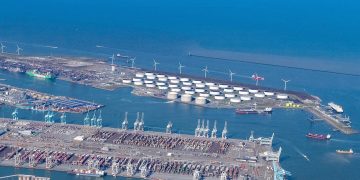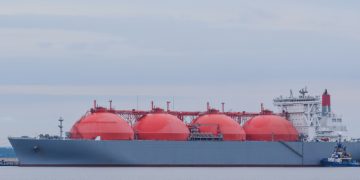In a world that glorifies multitasking as a sign of productivity, have you ever stopped to consider whether this approach is truly effective? While it may seem efficient to juggle multiple tasks at once, research suggests that our brains are not designed for such divided attention.
When faced with a heavy workload and challenging tasks, multitasking may actually become your biggest obstacle rather than a helpful strategy.
Multitasking is the ability to handle multiple thoughts or tasks simultaneously without sacrificing speed or accuracy. While computers and digital devices can manage this effortlessly, humans generally struggle with it, despite common beliefs to the contrary.
Debunking some myths around
Myth #1: Humans can multitask
While it may seem appealing to do multiple tasks at once, research shows that the human brain isn’t wired to focus fully on more than one task at a time. In reality, our brains have evolved to handle just one task at a time. When we believe we’re multitasking, we’re actually rapidly switching between tasks. This constant switching comes with a cost. Not only does it lead to more mistakes, but it also takes longer to finish both tasks when trying to do them simultaneously.
Myth #2: Multitasking increases productivity
It may seem like doing two things at once, even if not perfectly, would result in more productivity. However, the reality is quite the opposite. Studies by Dr. David Meyer and Dr. Joshua Rubinstein reveal that the brief mental interruptions caused by switching tasks can reduce productivity by as much as 40%.
Myth #3: There are different types of multitasking
Multitasking is often described in terms of task switching, context switching, and attention residue, but these aren’t separate types of multitasking; rather, they’re processes that contribute to its inefficiency. Multitasking itself is the attempt to perform multiple tasks simultaneously, while context switching (or task switching) refers to the rapid shifting between tasks. This constant switching leads to attention residue, where thoughts from a previous task linger and interfere with focus on the next. Together, these elements make multitasking less effective than it may initially appear.
Multitasking and the shipping industry
According to Dr. Mike Morales, President, MOL Magsaysay Maritime Academy, multitasking has been identified as a significant cause of maritime accidents, as highlighted by comprehensive research conducted by a team from the University of Tasmania, led by Captain Asanka Rajapakse. In particular, this study identifies three primary contributors to the issue:
- administrative burden, which overwhelms crew members with excessive paperwork;
- insufficient crewing, which leads to increased workload and stress; and
- the lack of a speak-up culture aboard ships, which discourages open communication and reporting of safety concerns.
‘’Seafarers are indeed expected to be some kind of superhero.’’ commented Dr. Mike Morales during his presentation at the last SAFETY4SEA Manila Forum, highlighting the expectation for seafarers to manage multiple tasks under critical conditions onboard. Indeed, maritime professionals, such as ship captains, officers, and crew, are required to monitor and manage various tasks simultaneously, ranging from navigation and communication to monitoring the vessel’s mechanical systems and environmental conditions.
This context is exemplified by Transport Malta’s MSIU investigation report on the grounding of the Malta-flagged container ship ‘Umm Salal’ off Selangor, Malaysia, on April 6, 2017. The report revealed that the Officer of the Watch (OOW) was left to interpret his observations and plan his actions independently, underscoring how the pressures of multitasking and insufficient support can directly lead to critical errors, ultimately contributing to maritime accidents.Top of Form
Why you should say NO to multitasking
- Loss of focus: Multitasking often leads to a loss of focus, especially when tackling important tasks that need your full attention. Save critical work for time when you can concentrate fully.
- Increased stress: Research indicates that multitasking is not only inefficient but also stressful, leading to mental and physical strain. Focusing on one task at a time can reduce stress and help you feel more in control.
- Time waste: While multitasking seems to save time, it often results in mistakes that require additional time to correct. Divided attention typically slows you down rather than speeding you up.
- Lower quality work: The quality of your output can suffer when multitasking. Attempting to cut corners or losing your train of thought can compromise the work you produce.
- Negative impact on mental health: Our brains are wired for single-task focus. Rapidly switching between tasks can be damaging, as shown by studies linking multitasking with lower gray matter density in the brain.
- Reduced productivity: Multitasking is more accurately described as task-switching, which can reduce productivity by up to 40%. Constantly losing focus is not beneficial.
- Creativity drain: Multitasking can stifle creativity. The mental strain from juggling multiple tasks can lead to missed ideas and a decrease in creative thinking over time.
A productivity trap for seafarers
Situational awareness involves a real-time understanding of the ship’s position, weather conditions, nearby vessels, and other environmental factors. Situational awareness enables crew members to anticipate and respond to potential risks effectively. It allows them to make informed decisions by understanding not only what’s happening but also how different factors might change and affect safety.
Multitasking and situational awareness are intricately connected, particularly in the maritime context, where the ability to effectively manage multiple tasks can significantly impact safety and operational performance.
Both multitasking and situational awareness require significant mental resources. When crew members are required to multitask, their cognitive resources can become stretched, leading to decreased situational awareness. This diminished awareness may result in an inability to accurately perceive and interpret critical information about their environment, such as navigational hazards, changing weather conditions, and communication from other vessels or ports.
As multitasking increases the likelihood of distraction and information overload, it can impair a seafarer’s ability to focus on key elements of the environment necessary for informed decision-making.
In conclusion, while multitasking may seem like a productivity booster, it is often a trap that leads to diminished focus, increased stress, and poorer work quality. The human brain is not designed to efficiently manage multiple tasks at once, and the constant switching between tasks results in lost time, reduced creativity, and compromised mental well-being. By focusing on one task at a time, we can enhance our productivity, reduce errors, and ultimately produce higher-quality work.



























































